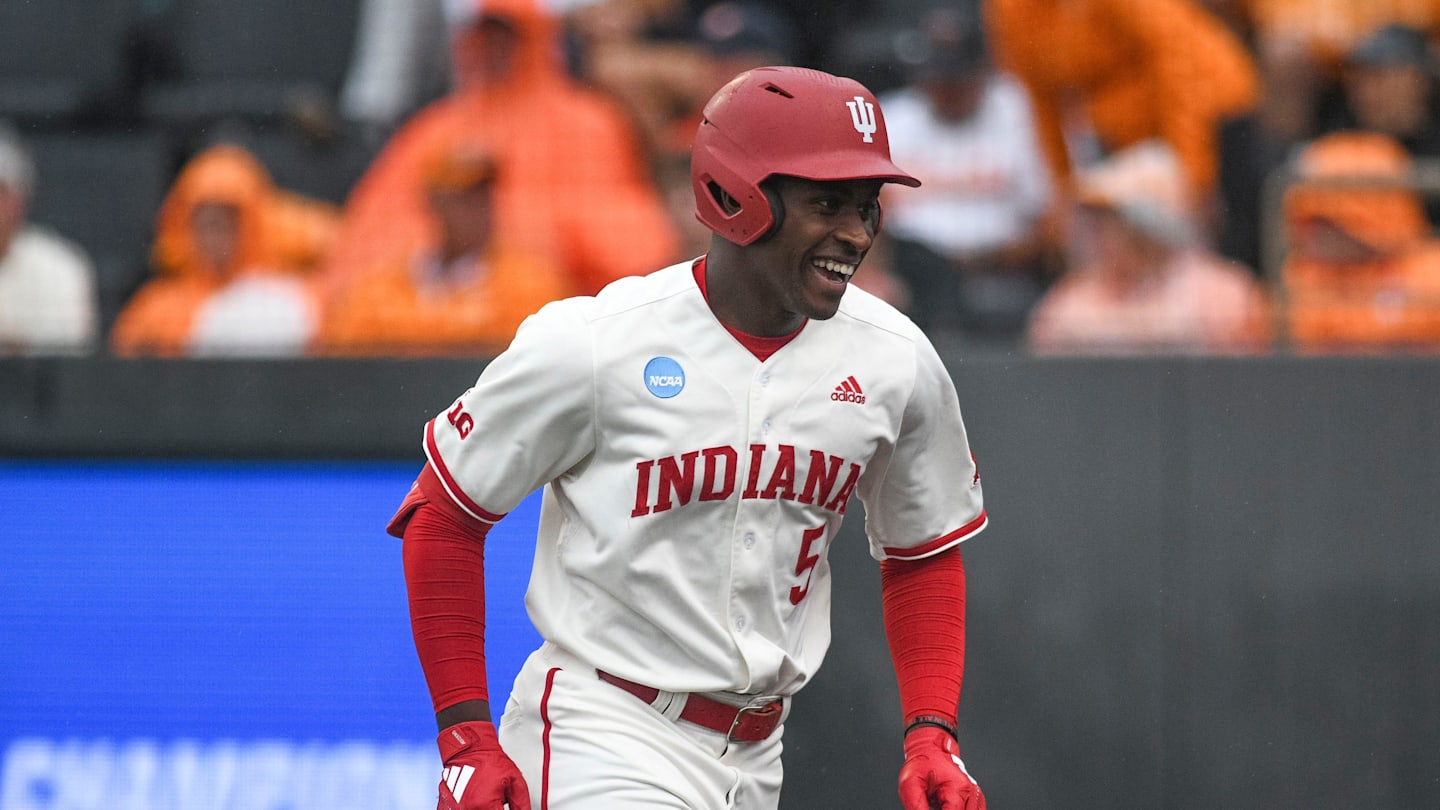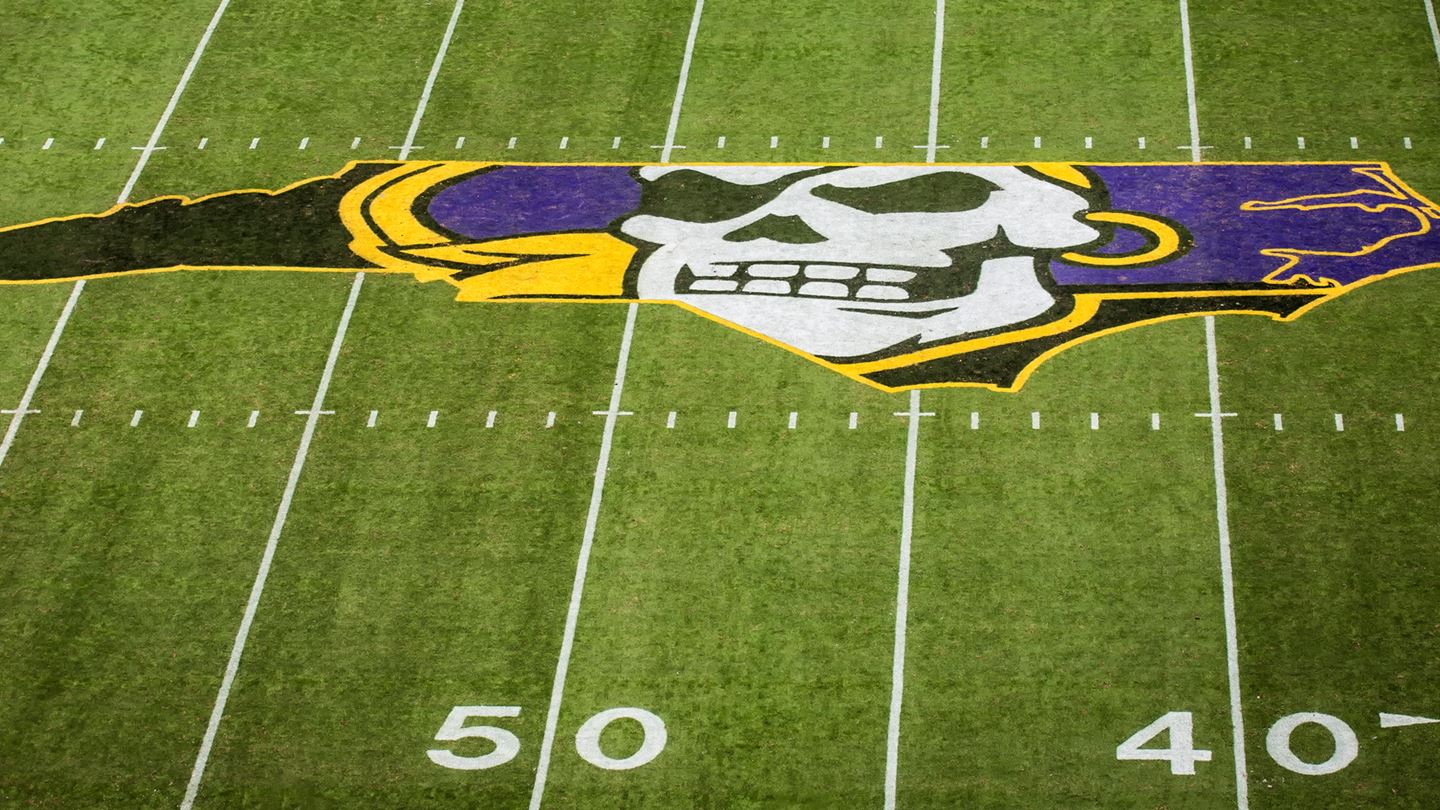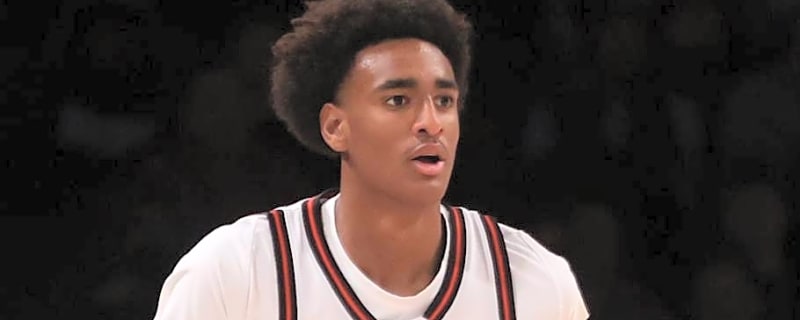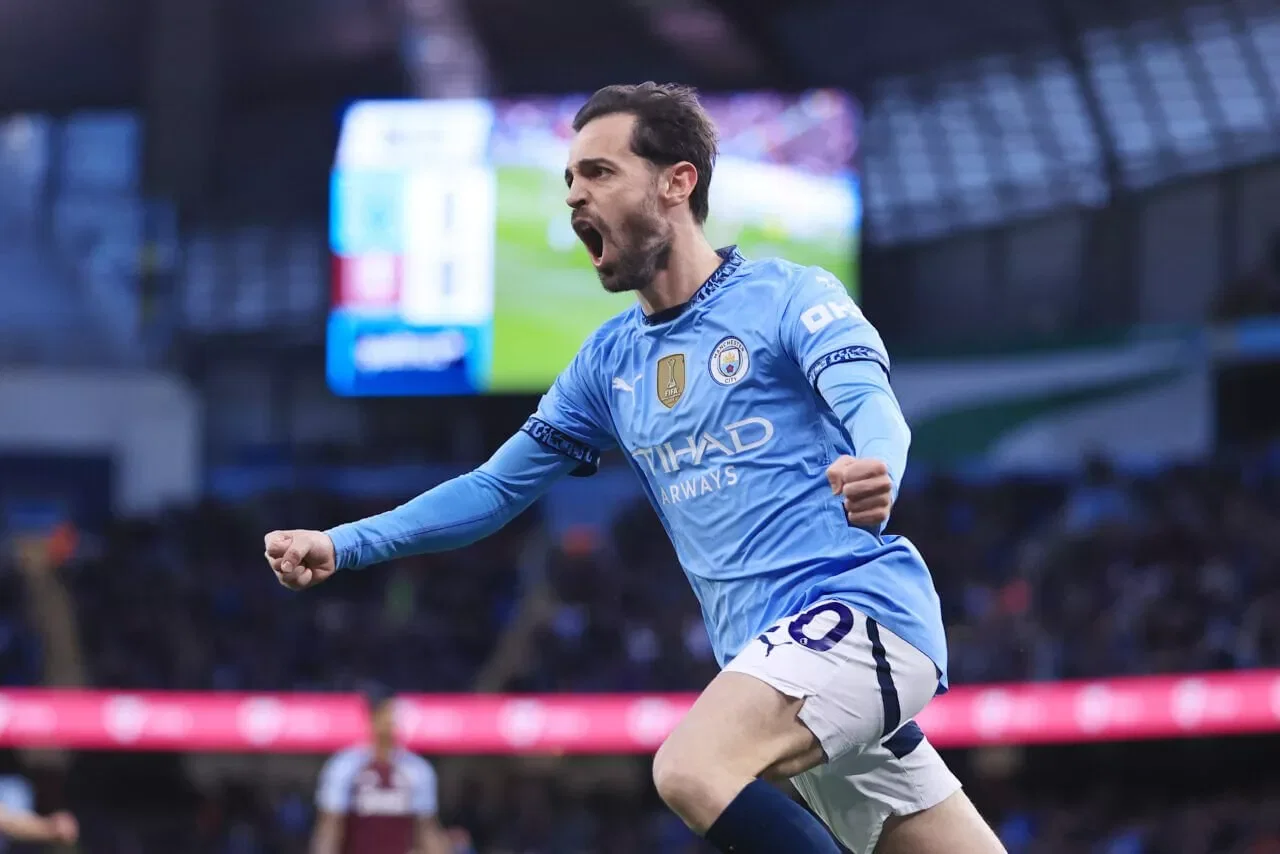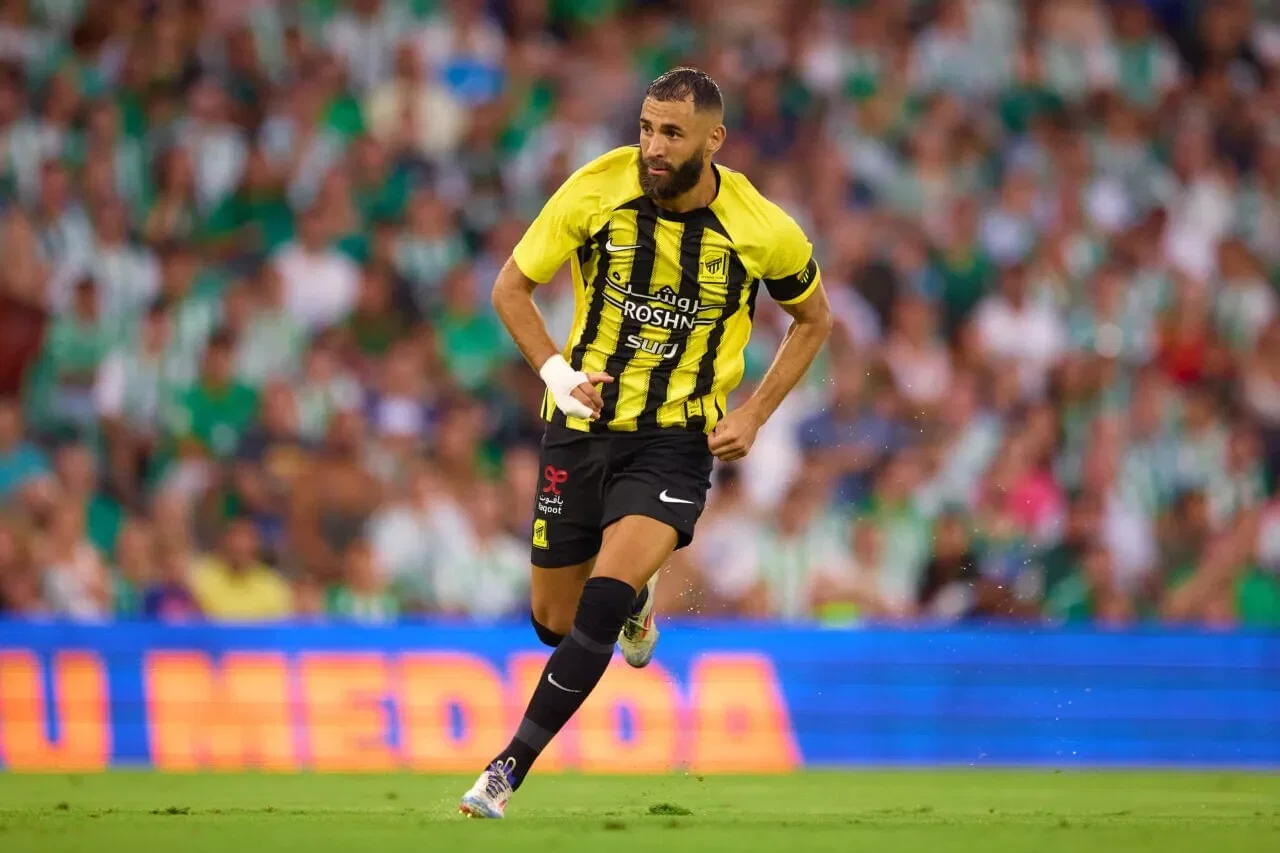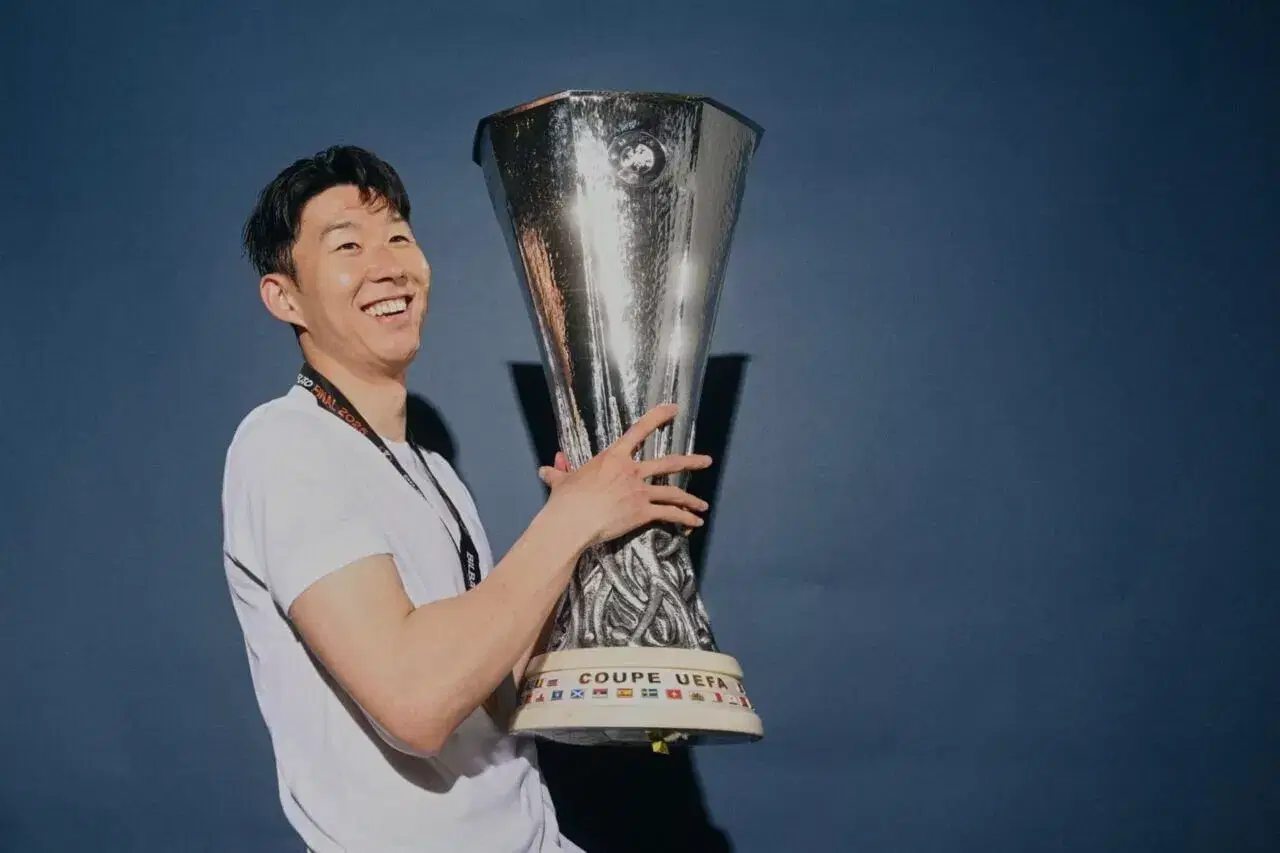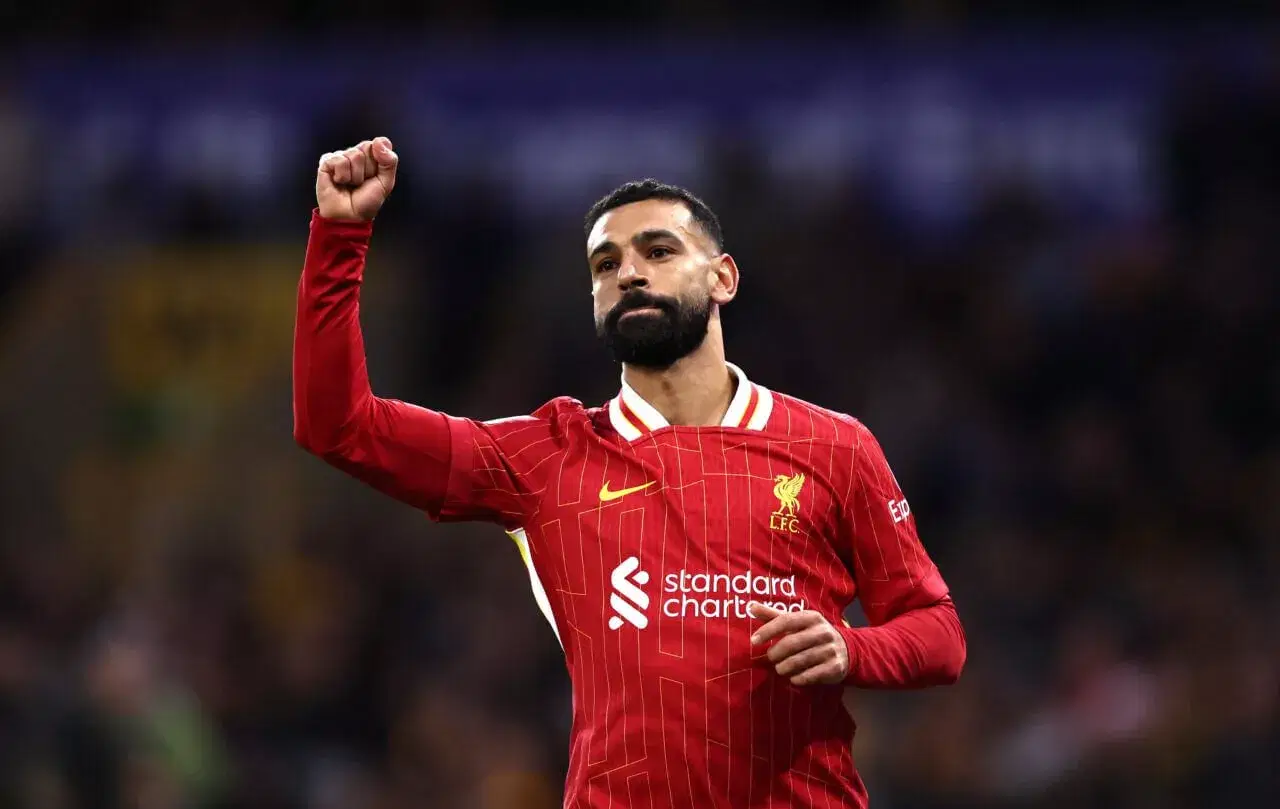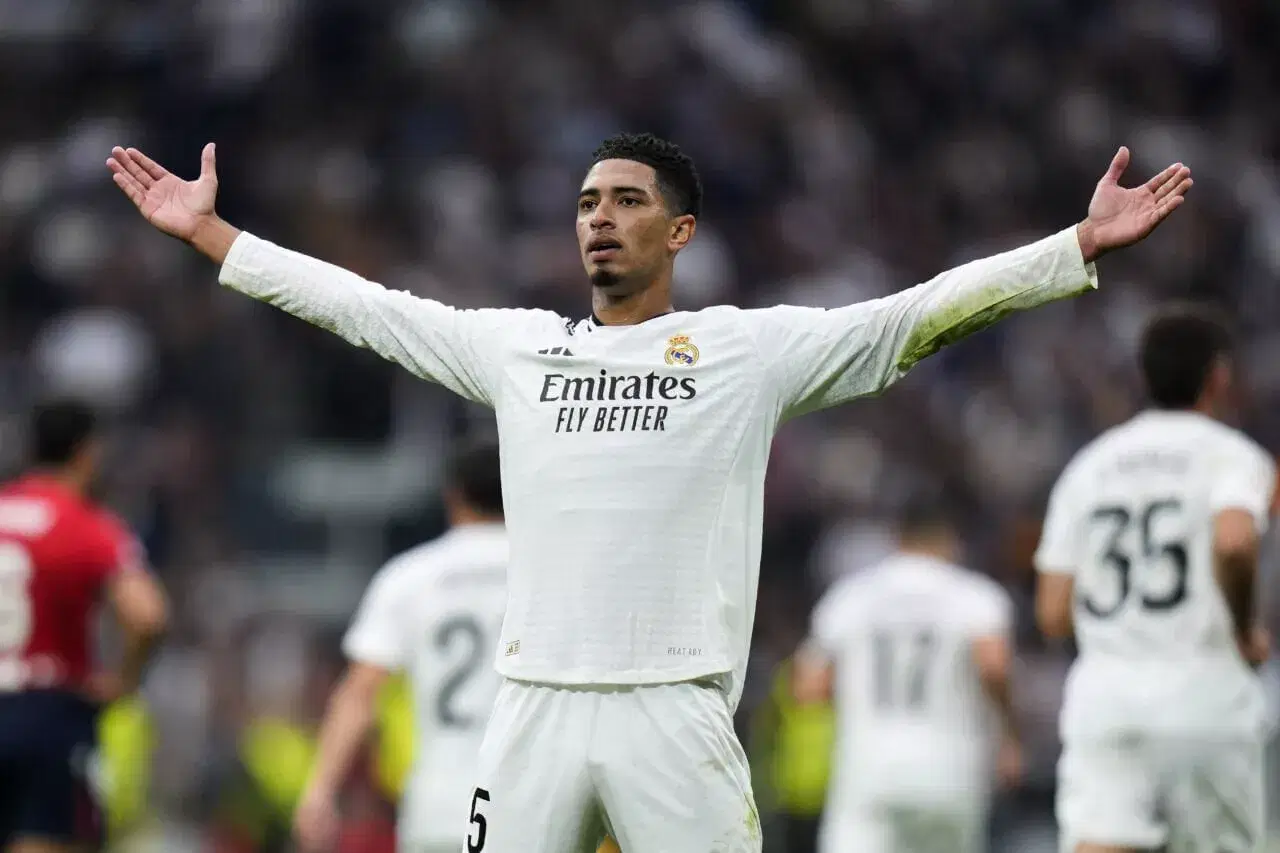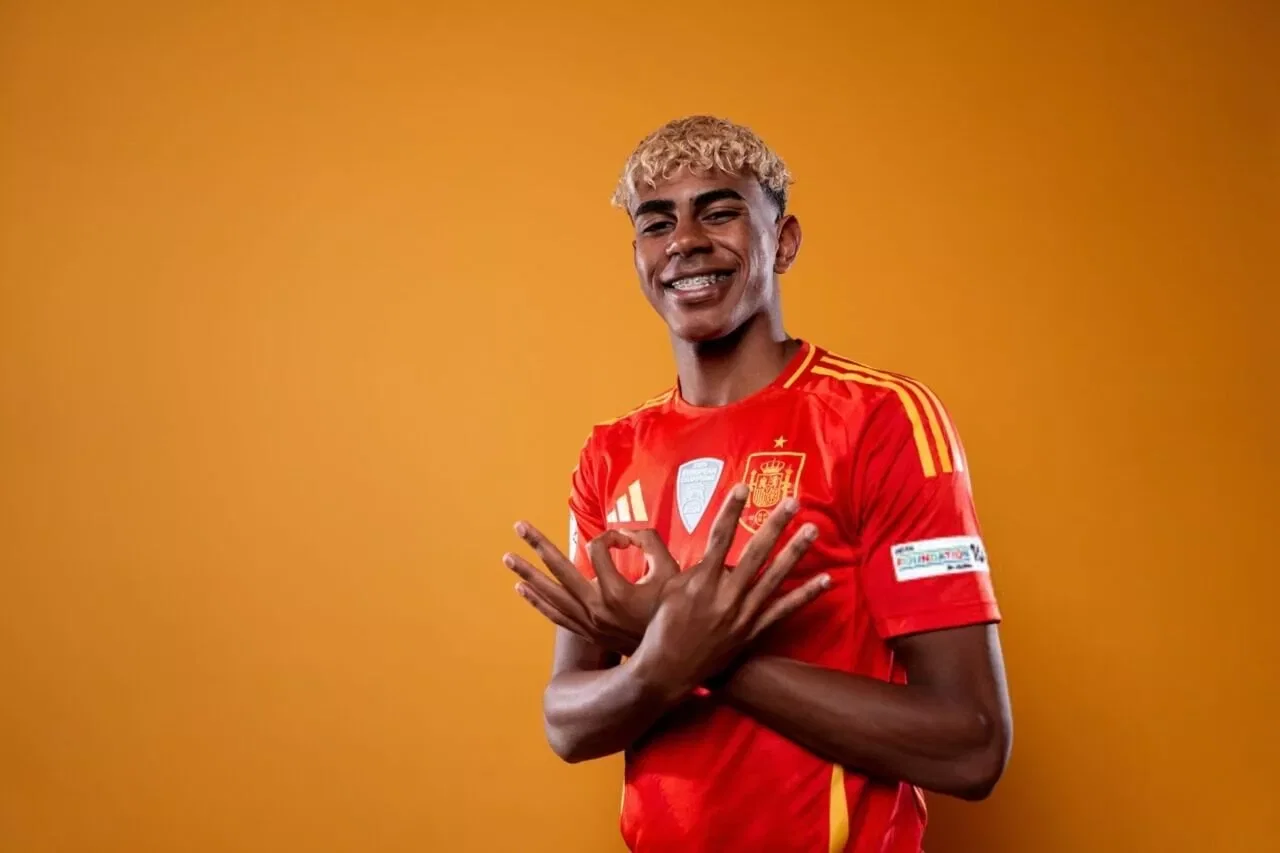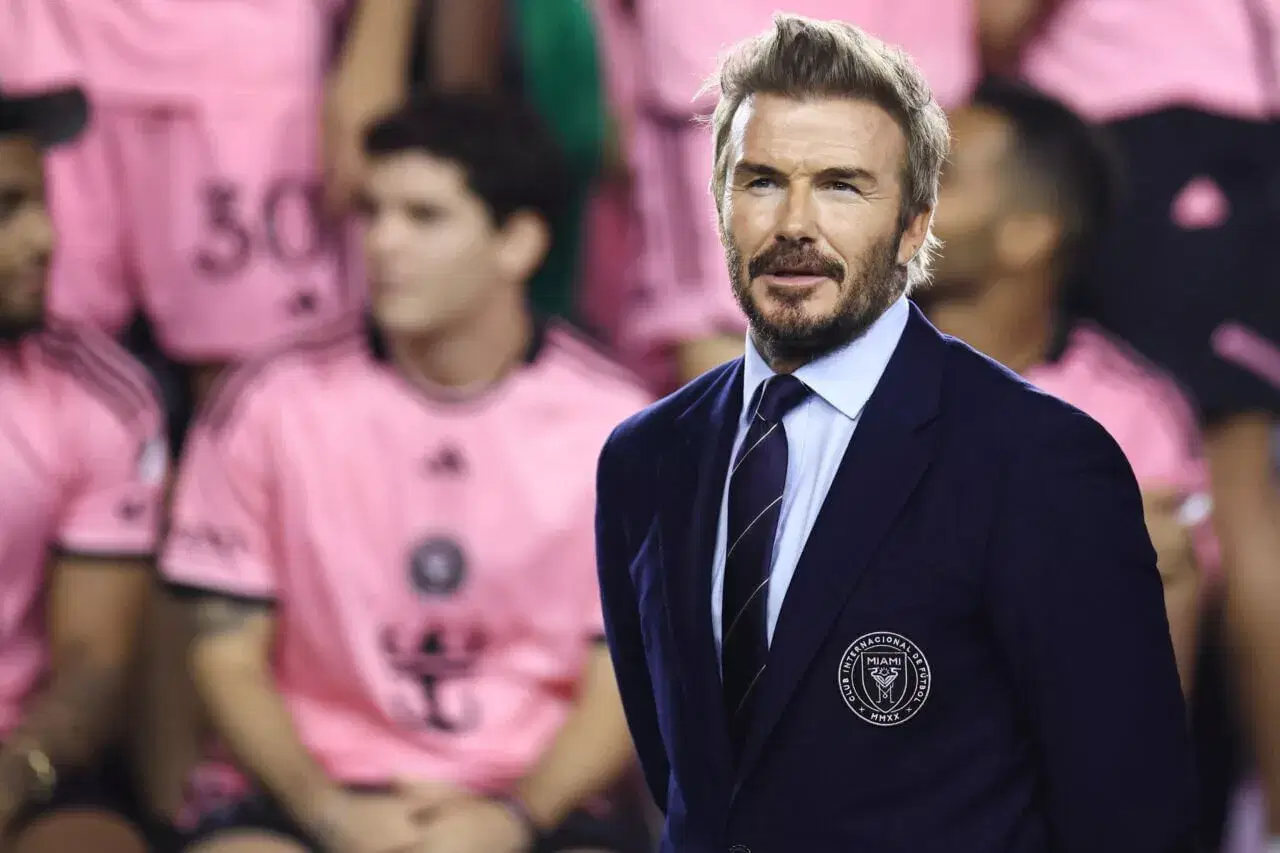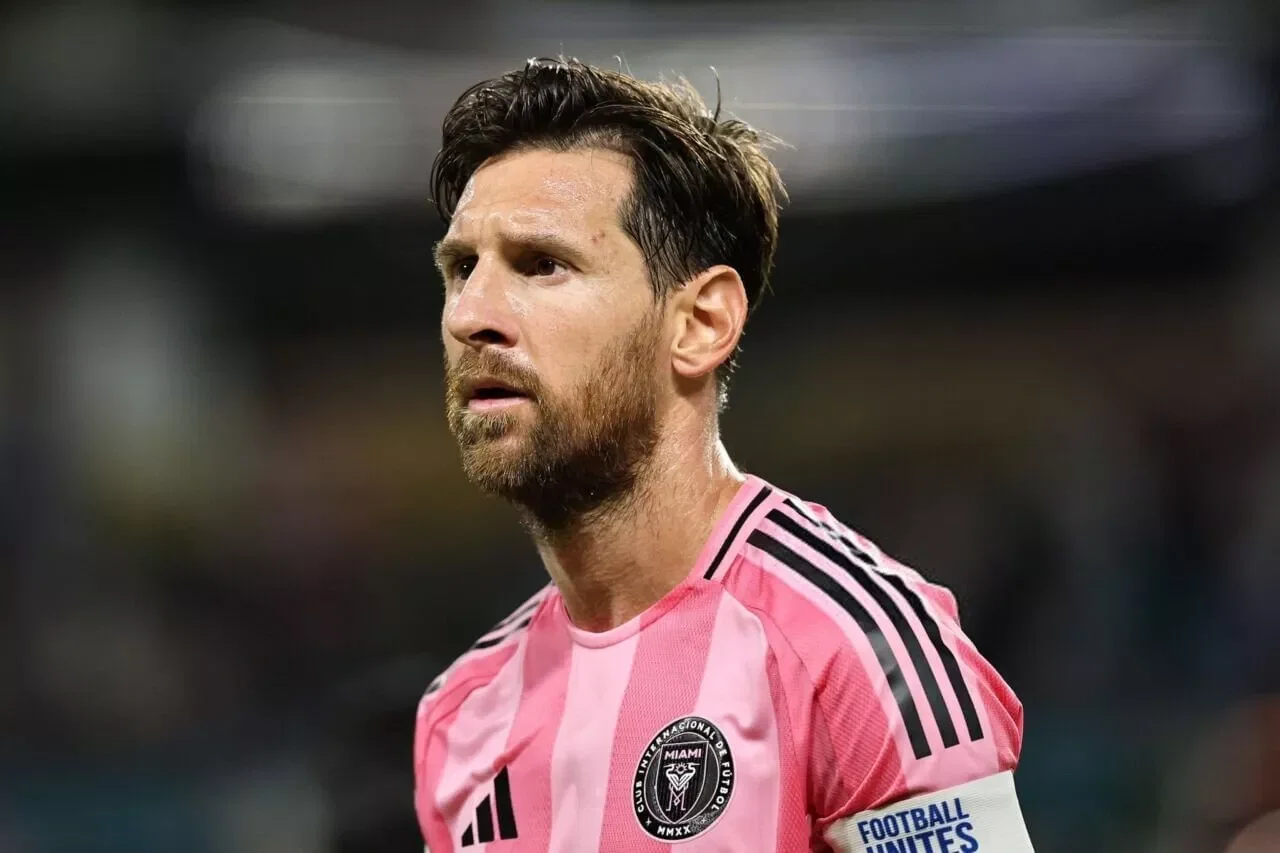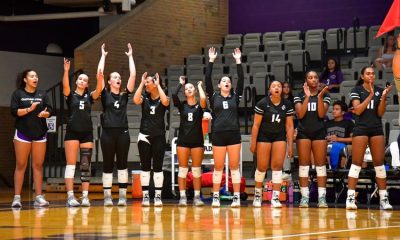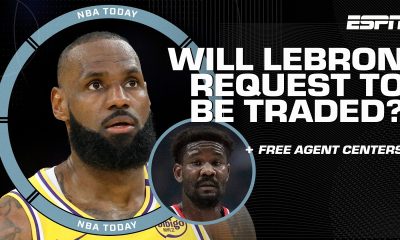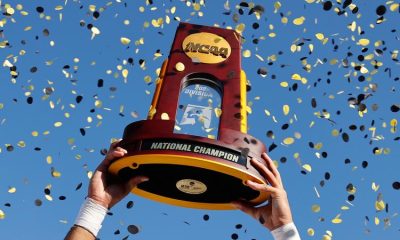LAS VEGAS — College football’s future wore a baby blue suit, a gold pin that read “UCLA” and a pair of diamond-encrusted hoop earrings.
He glided toward the microphone, sat down, then prepared for the grilling about how much money he makes, why he left the University of Tennessee, who betrayed who when he departed Knoxville, and what it all means for the college football world that his story now defines.
Bottom line: If quarterback Nico Iamaleava handles this season as well as he did his half-hour Q&A on Thursday as the Big Ten Conference’s media days event wrapped up, chances are, UCLA will be good — maybe even very good — in 2025.
“I think it’s just: Keep my head down and be humble,” the 20-year-old California native said. “And try not to let the outside noise affect you.”
If he succeeds at that, he will have more discipline than a great majority of fans, experts and journalists who have filled the internet and airwaves with timelines and tick-tock analysis of a decision that shook college football and seemed to say everything about the burgeoning power that players wield in a world of name, image and likeness deals and a rapidly rotating NCAA transfer portal.
The thumbnail of the story is that Iamaleava was a successful quarterback who led Tennessee to the College Football Playoff last season, then abruptly picked up stakes to head much closer to home and play for UCLA.
Money seemed to be the most obvious motive. Reports circulated that he was looking for a raise — maybe a doubling to nearly $4 million a year — to remain with the Volunteers for his redshirt sophomore season this fall. Then in mid-April, he missed Tennessee’s final spring practice the day before its Orange & White intrasquad scrimmage. Just as abruptly, he was gone.
Tennessee coach Josh Heupel handled it diplomatically.
“Today’s landscape of college football is different than it has been,” he said at the time. “It’s unfortunate — the situation and where we’re at with Nico.”
Before he’d even enrolled at Tennessee, Iamaleava was causing his share of turmoil. It was his NIL deal with the Vols that triggered an NCAA investigation and a lawsuit by the attorneys general of Tennessee and Virginia in January 2024.
The NCAA settled that lawsuit, and though there aren’t as many questions about who makes the payments to the players (the colleges can do it themselves now as result of another lawsuit settlement), recriminations that flowed when Iamaleava enrolled at Tennessee kept flowing after he made his move to UCLA.
Asked about what triggered his move and exactly when it happened, Iamaleava said it came around the time “false stuff about whether it was a financial thing or not” started coming out that made him “not feel comfortable in the position I was in.”
Then, in a revelation that not everyone appears quite ready to accept, he said moving closer to where he grew up — in Long Beach, about 30 miles from the UCLA campus — was the biggest piece of the puzzle. He was soon after joined by younger brother Madden, a 6-foot-3, 195-pound freshman quarterback who went through spring practices at Arkansas this year before transferring to UCLA.
“My driving factor to come back home was my family, and I hope every Tennessee fan understands that,” Iamaleava said. “It was really one of the hardest decisions I’ve ever had to make.”
He will not delve into finances, though most of the reporting has shown that Iamaleava will make about as much, or just barely more, with the Bruins than he was making at Tennessee.
“All that stuff is for my business team and my agents to handle,” he said. “I just focus on football.”
Among the other questions consuming college football, and that Iamaleava’s saga reflects as well as anyone’s, is how a player who makes more money and generates more hype than anyone else in the locker room can possibly fit on a team that is still, at its core, filled with teenagers whose football lives will end in college.
UCLA’s second-year head coach, DeShaun Foster, said he scouted that part when the prospect of Iamaleava coming to Westwood became real.
“He’s a team guy and a family guy,” Foster said. “It just felt good that we were getting the right kind of quarterback.”
From a pure talent standpoint, hardly anyone argues that. Iamaleava was considered one of the country’s top prospects coming out of high school. The 6-6, 215-pounder threw for 2,616 yards and 19 touchdown last season, his first as Tennessee’s full-time starter, while leading the Vols to a 10-3 record overall, a 6-3 mark in the powerful Southeastern Conference, and the first 12-team edition of the College Football Playoff. Tennessee lost in the opening round, 42-17, at eventual national champion Ohio State.
As one of the theories about his departure goes, though, he and his family were less than thrilled about Tennessee’s ability to protect him. The Buckeyes sacked him four times, which meant Iamaleava finished the season having been sacked 28 times.
None other than ESPN analyst Kirk Herbstreit — a former Ohio State quarterback — dove into the mix when he said he’d heard Iamaleava’s dad had gone to Heupel in December and said, “Like, hey, listen, you’ve got to get better at offensive line, better at receiver.”
Speaking not so much about that specific story but to the realities of football, Foster said he knows keeping things clean in the pocket for Iamaleava will be key to his success.
“If he stays upright, things are going to go the right way,” said Foster, a former NFL running back who led the Bruins to a 5-7 overall record (3-6 in Big Ten play) last season in his debut campaign as his alma mater’s head coach.
And if things do “go the right way,” there’s at least a chance Iamaleava could be a one-and-done player at UCLA. He is widely thought to have NFL talent if he improves his mechanics and accuracy — two areas that will be helped by better protection — and might need only this season before declaring for the draft.
During his news conference at Big Ten media days, the quarterback brushed aside questions about pro football.
He also said he pays no mind to the billion-dollar questions swirling around the college game every day — most of them revolving around student-athlete compensation, freedom to transfer and other issues that have turned UCLA’s quarterback into a villian in some places, a hero in others, and a player to watch everywhere.
“I love college football,” Iamaleava said. “Everything that goes on with my name, that’s not going to change my love for the game. Obviously, everyone has to move on. I’m excited about what’s next for me. But I’m where my feet (are), and right now, I’m a UCLA football player and I’m excited to go to camp.”

